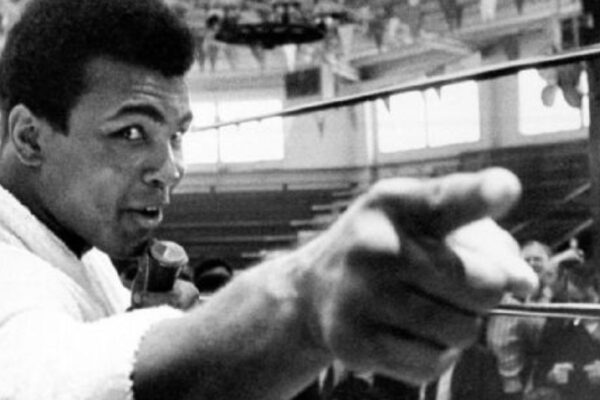As the world wakes up to the sad news of the passing away of the one and only Muhammad Ali, tributes from all over the world have begun to pour in. This was a man whose personality transcended his illustrious career in the ring, a man whose words hit as hard as his punches, a man who had captivated the hearts and minds of the people like a true cultural icon, the old and young, those who watched his every move in the ring and those who couldn’t stand the sight of two men beating each other unconscious; there is a part of Muhammad Ali that appealed to every section of society. His determination, his bravery, his no nonsense attitude, his humility; you name it, everything he did oozed with a sense of self-respect and self-belief that left viewers dumbfounded by him.
A family man, a social activist, a visionary, a champion in the ring and a champion of the disenfranchised outside it; a man with principles who lived in a time of deceit and a man who would willingly throw away everything that he earned with his blood and sweat if it meant compromising with his ideals and beliefs.
Whilst his ability in the ring was second to none, (every boxer to grace the ring since merely aspires to achieve a fraction of what Ali had), this fame and success that he gained, rather than using it as a one-way ticket to indulge hedonistically in every pleasure this world contains, was used as a means towards building a better society, giving a voice to the voiceless and building bridges in an era torn down with senseless bigotry and prejudice.
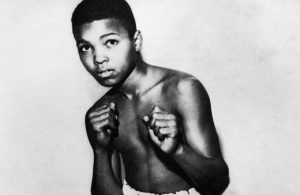 Born in 1942 with the name of Cassius Clay Jr into a modest family, descendants of former slaves, his boxing career began in earnest at the age of 12 when after a day out with a friend he found his bicycle had been stolen. Fuming and unable to control his anger, he remonstrated in front of the town’s police threatening to turn the world upside down in pursuit of the thief and to absolutely “whoop” him when he finds him. The policeman teasingly responded asking if little Cassius even knew how to fight, and little would they know that this question would ignite a passion that would leave its mark on the hearts of millions world-wide. It wasn’t long before this naturally gifted athlete had made his mark on the ring, winning dozens of bouts and racking up medals left, right and centre in what was to be an extraordinary career in one of the world’s most competitive sports.
Born in 1942 with the name of Cassius Clay Jr into a modest family, descendants of former slaves, his boxing career began in earnest at the age of 12 when after a day out with a friend he found his bicycle had been stolen. Fuming and unable to control his anger, he remonstrated in front of the town’s police threatening to turn the world upside down in pursuit of the thief and to absolutely “whoop” him when he finds him. The policeman teasingly responded asking if little Cassius even knew how to fight, and little would they know that this question would ignite a passion that would leave its mark on the hearts of millions world-wide. It wasn’t long before this naturally gifted athlete had made his mark on the ring, winning dozens of bouts and racking up medals left, right and centre in what was to be an extraordinary career in one of the world’s most competitive sports.
As the world begins to look at his legacy and how he changed the world one punch at a time, let’s have a look at five things we can take and learn from his life:
1. Never be afraid of speaking truth to the Establishment
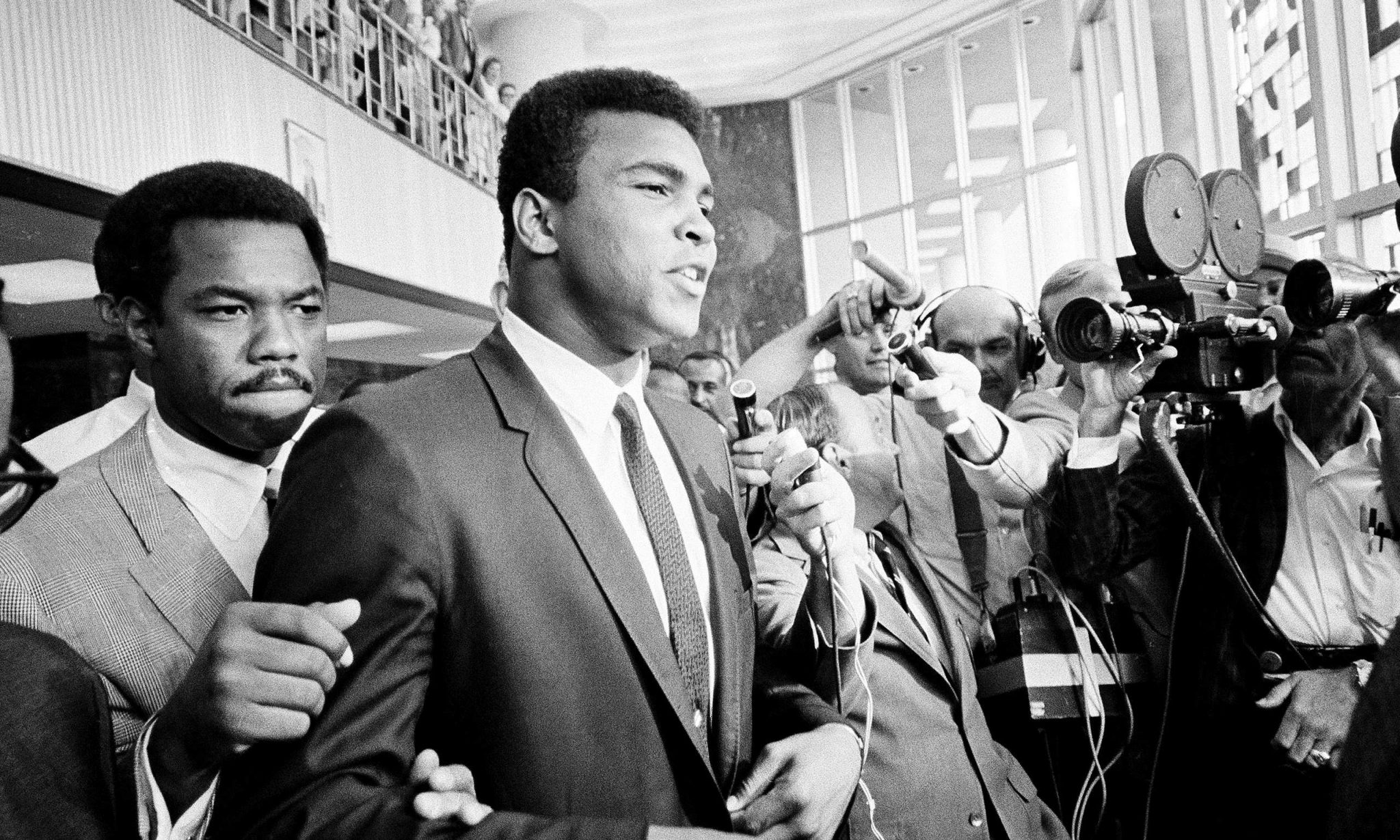
One of the defining features of Muhammad Ali’s career was his uncompromising and firmly rooted principled stance with oppression. Growing up in a time of government sanctioned apartheid and state supported racial segregation, Ali was no stranger to racism and the daily struggles an African American would have to go through simply to live a normal life. Want to board a bus? Fine sit at the back. Want to eat at a restaurant? Go to the coloured section please. Want to go school? Tough, you’re black. Want to enjoy walking down the street? Be careful you don’t end up getting lynched.
Seeing that racism had become the norm and oppression had become institutionalised, Muhammad set his sights on doing whatever he could to protest against it, knowing very well that a person who approves of oppression, albeit in his heart, is considered in the eyes of God like the one who is doing it. In the 1960’s, when Muhammad was at the peak of his career, the US waged a genocidal war against the people of Vietnam and Cambodia, issuing a draft calling on eligible American citizens to join in this murderous and brutal war being unleashed in Asia. Ali was having absolutely none of it. “Ain’t no Viet Cong ever called me a ni****” he beamed out as he was interviewed. When confronted with calls of being a traitor with his eloquence and lyrical prowess he retorted: “I am not going 10,000 people to help murder poor people…even if it costs me millions of dollars!”. When threatened with jail, “we’ve been in jail for 400 years!” he snapped out.
Following in the footsteps of the giants of Islam like Abu Dhar al-Ghaffari, whose protests against the opulence of the rulers of his time costed him everything he had, Muhammad Ali was stripped of his boxing titles, his contracts were torn and he couldn’t box for 3 years. But all this didn’t matter. Wrong is wrong and he would rather give everything up then sit down on the table of tyranny even for a moment. And it was this unbendable spirit of Muhammad Ali that became the inspiration for the likes of Martin Luther King and other anti-war activists to speak out against the war of Vietnam after they had remained silent for fear of “alienating” the establishment.
This spirit of defiance in the face of oppression is the basis of the religion of Islam, there is no better struggle than speaking the word of truth to an oppressor as our Holy Prophet would frequently mention. Had Muhammad Ali desired fame he could have taken part and the Establishment would have lavished upon him gifts after gifts, he would have become the poster boy for the US Army and who knows how influential or rich he may have become. But he knew that there is no value in fame and treasures dipped in the blood of the innocent. The real struggle was back home in the ghettoes, not in Asia.
Similarly, in this era where America has continued its quest of global dominance in the East, where Barack Obama has attacked more Muslim countries then any president before, where Israel continues to dehumanise Palestinians and misappropriate more land, it is a shame to see Muslims sacrifice their dignity for the oppressors on the altar of fame or reputation, or to see Muslims unwilling to speak out of fear of the repercussions. Our responsibility in the face of oppression is crystal clear and Muhammad Ali’s life is a great case study to show that in this century nothing should be put before the speaking of truth and sticking to principles.
2. Embrace Islam
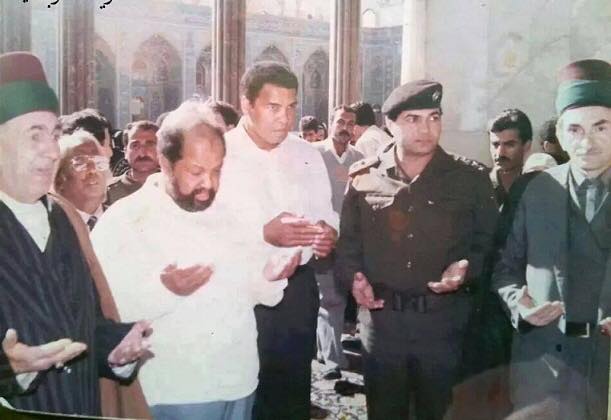
In 1964 Muhammad Ali decided to convert to Islam, dropping his former slave name of Cassius Clay and adopting a name he felt would be more befitting to his new life as a Muslim. Having suffered from racial inequality and unbridled bigotry he naturally gravitated towards Islam’s call to equality and justice, initially joining the Nation of Islam and then mainstream Sunni Islam. Immediately after he converted he requested for everyone to call him by his new name, and as was his outspoken and at times eccentric nature, he never shied away from his new identity and instead saw it as a source of pride.
With his powerful oratory skills he would use every opportunity he had to speak confidently about his experience, the reasons behind it, his feelings and his thoughts and how it was one of the best decisions of his life. When asked on live TV if he was worried about being assassinated and if he had a bodyguard, full of assurance and without any sense of embarrassment he spoke self-assuredly of how Allah is his bodyguard, and that of the interviewers! At other times he openly discussed the philosophy of religions and the principle of social equality in Islam. When asked by a kid what he will do after he finishes boxing he responds with a mini aqaa’id lesson, explaining beautifully in a few minutes what many couldn’t do in hours.
He recognised that his conversion to Islam was a blessing, and as such we shouldn’t be afraid in representing this blessing in front of non-Muslims. Here we have a Muslim speaking proudly about who he is and what he does irrespective of how big the platform is, be it on national television or in the newspaper, but today in contrast it seems like we have a large section of Muslims who have caught an inferiority complex, having to apologise for everything that Islam calls towards.
Be proud of who you are and the Divine creed that you have. Rather than being a reactive and apologetic Muslim be confident in explaining to others what you believe in, have pride and dignity in your faith. Don’t feel the need to change yourself, compromise your beliefs simply because you don’t “fit in”, and as Muhamamad Ali perfectly demonstrates, with a wide smile and calm demeanour wax lyrical about who you and what Islam calls towards.
3. Believe in yourself
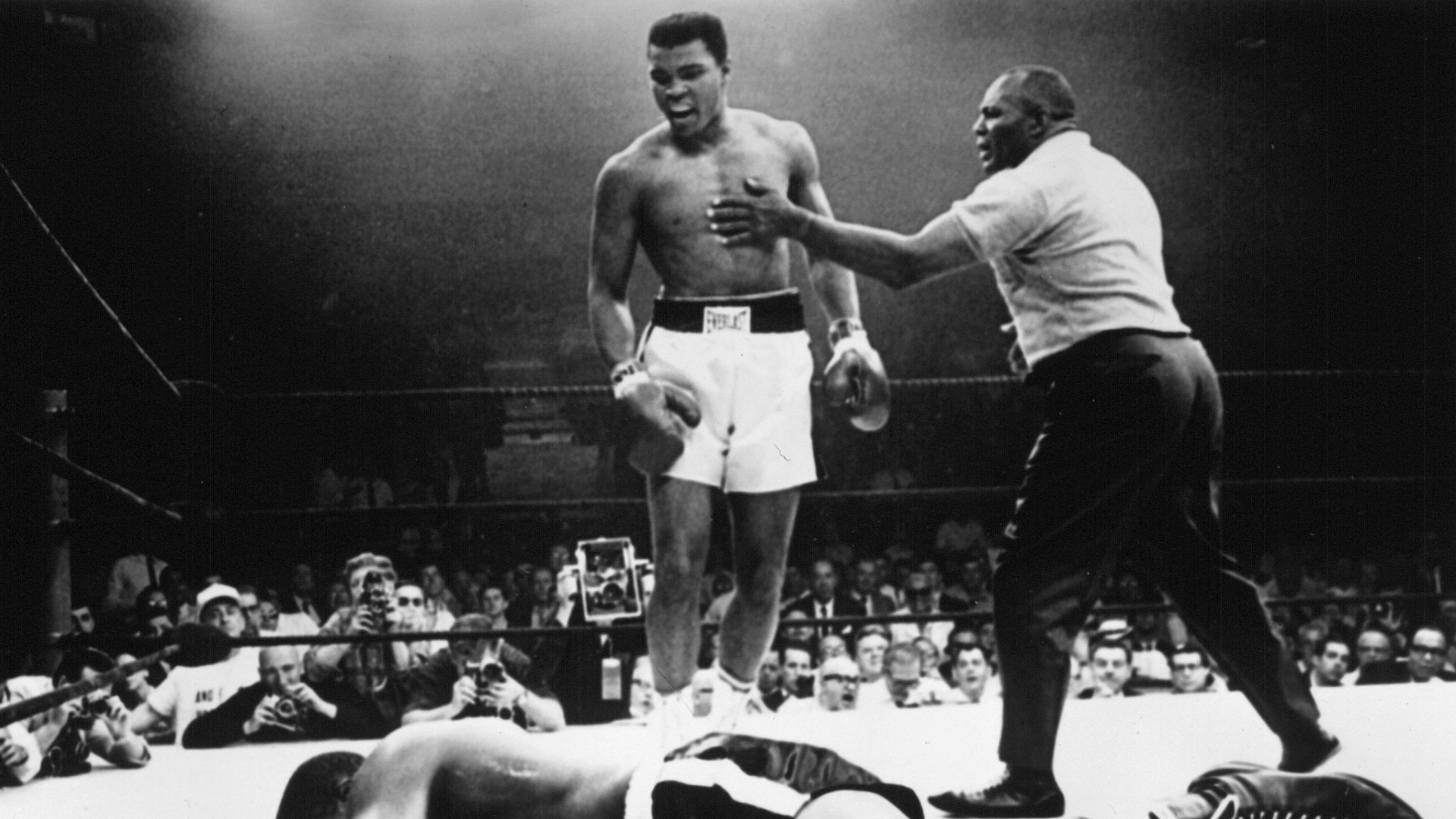
Muhammad Ali beautifully said: “It isn’t the mountain ahead to climb that wears you out, it’s the pebble in your shoe”. The only limit in achieving and fulfilling our potential is ourselves. The mental barriers we erect and contain ourselves with, the nagging voice which is quick to think about failure and embarrassment, the pessimistic outlook in life showing every opportunity that comes our way as nothing more than a half empty cup destined to drown us in a life of disappointment and misery. But the truth of the matter couldn’t be more opposite, success is based upon the effort we are willing to exert in accomplishing our goals and the determination we have to weather the storms of life which will be thrown our way.
Muhammad Ali grew up in a poor area, to a poor family, in a society where people of his race couldn’t walk down the street without being harassed or intimidated simply for the colour of their skin. The odds were stacked against him, the institution was rigged against him and there were more enemies to bring him down then friends to hold him up. But this was irrelevant, he had the determination to keep him going and no one was going to put a ceiling on his ambition or quench his thirst for success. As God so eloquently points out in the Quran:
“And God will whenever change the condition of a people unless they change their own condition first” (13:11).
Muhammad Ali demonstrated that it’s only by removing the fear of failure, training hard and being confident in your own abilities that you can succeed. “Impossible is nothing” was his mantra. The moment you allow others to dictate what you can and can’t do you’ve imprisoned yourself to their wishes of others and have become a flag which simply goes whichever way the wind tells it. As Muhammad Ali puts it, the real fight to be won is in the mind: “The fight is won or lost far away from witnesses – behind the lines, in the gym, and out there on the road, long before I dance under those lights”.
4. Living for Others

In Chapter 53 of the Qur’an, verses 29 and 30 Allah speaks about individuals who are intoxicated with the love of this world and whose only concern is indulging in as much pleasure as possible. These individuals that God describes possess knowledge, however rather than using this knowledge as a means to help others, as a means to secure their hereafter, of being a positive benefit in society, they instead chose to ignorantly restrict themselves to this fleeting life and as a result they have written for themselves nothing but failure. Whatever we have in this life, be it knowledge, wealth, influence or power, it is all a means to be used for building our eternal abode. This acknowledgement of a purpose greater than ourselves, of our responsibility to being of benefit was visible throughout the career of Muhammad Ali as well as his action post retirement. He famously said:
“I’ve made my share of mistakes along the way, but if I have changed even one life for the better, I haven’t lived in vain”.
He would often talk about the role he now has given his influence to bring a positive change, to try and be that reformer uniting people in a world which is continuously being divided. Rather than taking his millions and splashing it all away and making the most of the remainder of his life in the mirage of this world he shunned lavishness and chose to make a positive influence, travelling the world to bring a positive message to the impoverished millions who cherished his every word. We all have a responsibility and role to give back to society based on the knowledge (and whatever else of this world) we have gained, as the Prophet famously said: “The best of actions is to be of service to others”.
5. Remember who is number One
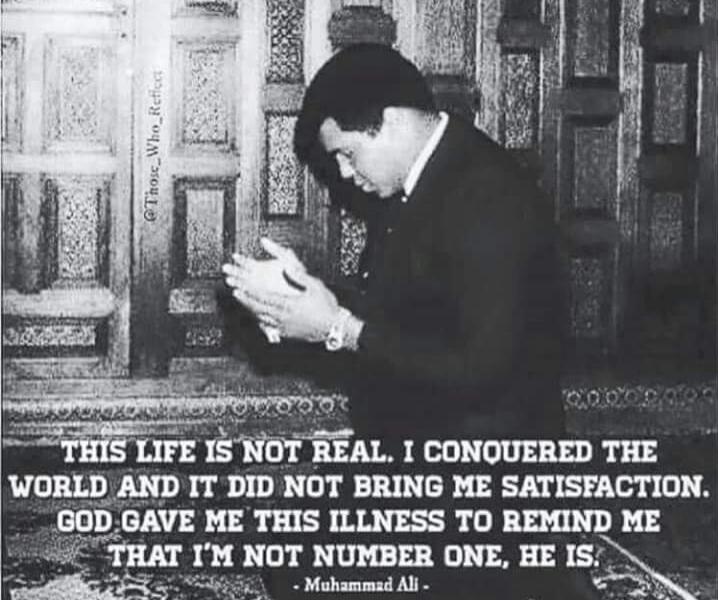
In Islamic literature we frequently find that one of the features of wealth and reputation is that it intoxicates and distracts a person from realising his dependency on God. The Holy Prophet is narrated to have said: “Two hungry wolves let loose on sheep are not more dangerous than the effects of wealth and reputation on the faith of a believer”. Having risen from rags to riches so quickly, with millions chanting your name across the globe and never being in need of anything from anyone ever again you wouldn’t be surprised if God, or faith would be the last thing to be spoken about by Muhammad Ali, yet on the contrary he managed to stay firm to his faith and did what he could to keep practicing. He famously said:
“I don’t smoke but I keep a match box in my pocket. When my heart slips towards a sin, I burn a match stick and heat my pain. Then I say to myself: Ali! You can’t bear even this heat, how would you bear the unbearable heat of Hell?”
Everything that we have is a gift from God, and no matter who we are, what we own or how influential we might be, none of us can flee the rule of the Almighty. Overcoming this base inclination to rebel against God with what little of the glitter of the world comes our way is no small feat, and the example set by Muhammad Ali should make us think twice next time we disobey the real Number One…

